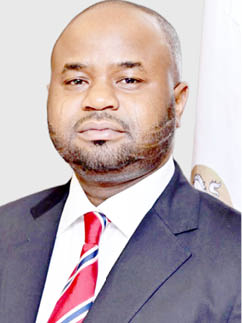Taxes all over the world serve as one of the major sources of revenue for governments at both federal and subnational levels. It is a compulsory contribution levied by the government on workers’ income as well as business profits. It is also added to the cost of some goods, services, and other financial transactions.
Tax is also seen as any compulsory payment to the government imposed by law without direct benefit or return of value or a service.
The Federal Inland Revenue Service (FIRS) is the statutory agency responsible for collecting tax revenues on behalf of the federal government in Nigeria.
In Nigeria, there are basically five major categories of taxes which include Corporate Income Tax (CIT) levied of profit returns of corporate entities, Petroleum income tax levied on the net profit of petroleum exploration and production, Value Added Tax (VAT), a consumption tax paid when goods are purchased and services rendered. Usually, it is a multi-stage tax and is borne by the final consumer. VAT in Nigeria is currently charged at a rate of 7.5 percent.
- Institute vaccinates 10,000 livestock against Trypanosomiasis in Gombe
- CSOs pass vote of confidence in Matawalle, Badaru over fight against insurgencyIn the same vein, Personal Income Tax (PIT), also known as individual income tax, is a tax levied on an individual’s wages, salaries, investments, or other forms of income while Withholding Tax (WHT) is also deployed by an employer to deduct from an employee’s gross wages and pays directly to the government. Sometimes, withholding tax is used to offset tax liabilities.
Subsequently, experts have underscored the need for the FIRS to streamline tax activities, especially the collection process and make it more flexible in order to achieve the objective of taxation. They have also called on the relevant authorities to ensure that multiple taxations are eliminated to create a conducive environment for Micro, Small and Medium Enterprises to thrive.
Nigeria’s tax policy
Nigeria’s national tax policy was first published in 2012 with the sole aim of implementing a workable tax administration system in the country.
However, a national tax policy review committee was inaugurated on 10 August 2016 by the then finance minister, Kemi Adeosun, with a mandate to review and update the National Tax Policy which was first published in 2012.
The National Tax Policy provides the fundamental guidelines for the orderly development of the Nigeria tax system. The policy is designed to review the tax system and provide the basis for future tax legislation and administration which will serve as a point of reference for all stakeholders on taxation.
The policy is also targeted at promoting equity and fairness in the Nigeria tax system devoid of discrimination. It also highlighted that tax payers should be required to pay according to their ability, adding that tax laws and administrative processes should be simple, clear and easy to understand.
The new policy outlines the key provisions under Chapter 2 of the Constitution of the Federal Republic of Nigeria 1999 that contains fundamental objectives and directive principles of state policy which are relevant to tax policy. These include honest declaration of income and payment of tax; fiscal responsibility and accountability; promoting a planned and balanced economic development; securing maximum welfare, justice and equity and so on.
Key changes FIRS is bringing
Although the FIRS has brought some key changes to reform tax administration, of the vital ones was the automation of tax filing which eliminates the cumbersome process of payment.
The Finance Act 2020 and Sections 25 of the FIRS Establishment Act grant the FIRS powers to deploy technology to automate the tax administration process, including assessment, collection and information gathering. As part of the amendments to the FIRS Establishment Act in the Finance Act 2021, FIRS is now empowered to use third-party technology to automate tax administration.
In line with its mandate to automate the tax administration system, the FIRS launched an e-Tax portal for filing naira-denominated tax returns (TaxPro Max) to ease compliance, ensure convenience and flexibility and increase accountability.
The TaxPro Max platform is the FIRS’ latest effort at digitalising tax administration in Nigeria. The platform, deployed fully in 2021, gives taxpayers the ability to file tax returns (Value Added Tax, Tertiary Education Tax and Companies’ Income Tax) electronically, pay the applicable taxes electronically/online, enjoy instant credit of withholding tax as well as other credits to the taxpayer’s accounts, ascertain capital allowance carried forward and obtain tax clearance certificates.
The platform however is only accessible for Naira denominated tax returns. Usually, a Document Identity Number (DIN) will be generated upon filing the tax returns, except for Nil returns. The DIN is mandatory to make payment upon successful filing. Also, TaxPro Max allows companies to make tax payments on account. Payments made on account may be used to offset applicable taxes in future.
Consequently, at the just concluded two-day management retreat of the FIRS which had the theme “Re-imagining Tax Administration for Equity and Economic Growth,” the recently appointed Executive Chairman of the Service, Dr. Zacch Adedeji, noted that the Service is commencing a transformative journey as he unveiled the new FIRS organizational structure, which will serve as the bedrock to revolutionize tax administration in Nigeria.
According to Dr. Adedeji, the strategic reforms of the Service will now serve the yearnings of customers and tax payers as part of efforts to simplify tax payment.
His words: “The cornerstone of this paradigm shift is the establishment of a customer-centric organizational structure designed to streamline processes and enhance efficiency in our tax operations. We are not merely adapting to change; we are leading it. The forthcoming structure, set to kick off from February 2024, embodies our dedication to modernize and digitize the tax administration landscape in Nigeria.
“For a more efficient and contemporary tax administration methodology, we are embracing an integrated tax approach, leveraging technology at every step. This approach positions FIRS at the forefront of innovation, ensuring that we meet the evolving needs of our taxpayers in a rapidly changing world.
“The structure advocates for a comprehensive approach to taxpayer services, consolidating our core functions and support under one umbrella. By tailoring our services to specific taxpayer segments, we aim to simplify the taxpayer experience. No more complexities, no more overlaps—just a seamless and user-friendly interaction for every taxpayer,” the FIRS chairman said.
Giving more insights on the changes, Dr. Adedeji explained that the Service will henceforth “Be shifting away from traditional tax categorization. Instead of maintaining different departments for distinct tax categories, the new structure formulates taxpayer segments based on thresholds. This tailored approach ensures that taxpayers are guided and serviced according to their specific needs, eliminating confusion and redundancy in tax administration. Our transformative initiative set the stage for a more responsive, efficient, and user-friendly tax administration system.”
He further noted that the “Forthcoming structure is not just a set of reforms; it is a commitment to redefine the role in shaping a modern, efficient, and customer-focused tax administration system through innovative organizational restructuring and process optimization, as the Service is committed to fostering a taxpayer-friendly environment that aligns with global best practices and positions Nigeria as a leader in contemporary tax administration.”
Deploying tech key to effective tax system – Expert
In his reaction, a development expert, Joseph Momoh, said the current era of digital technology and artificial intelligence has provided an opportunity for the federal government to make tax administration effective.
He said one of the major challenges in revenue collection has been lack of proper documentation and leakages, “which is why we need to digitise our ways of collecting revenues if we want to stop leakages.
“The FIRS has a target of about N19 trillion this year and the only way it can be achieved is to completely digitize the system to ensure that the system captures at least 80 percent of eligible taxpayers into the tax net.
“Another very important area the FIRS Chairman should look at is to eliminate multiple taxation because businesses are already suffocating and the only way to provide succour is to simplify taxes.”

 Join Daily Trust WhatsApp Community For Quick Access To News and Happenings Around You.
Join Daily Trust WhatsApp Community For Quick Access To News and Happenings Around You.


